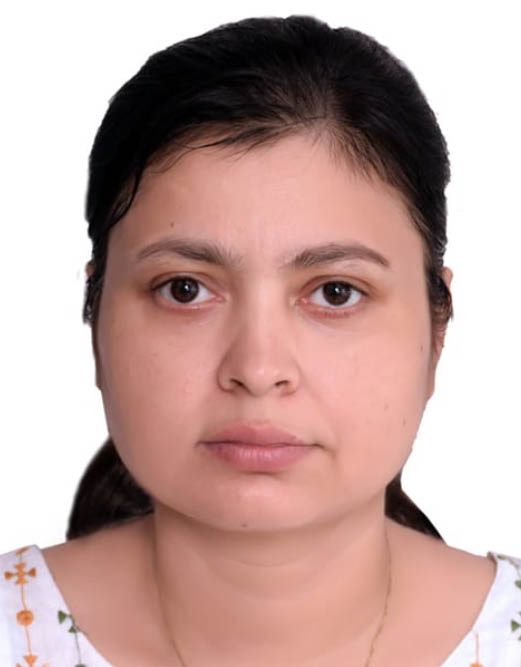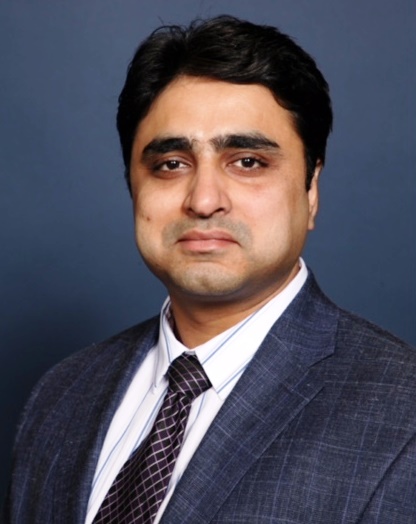Dr. Chendil Damodaran's Lab
Research Goals
The Damodaran lab focuses on three areas:
- Etiology of genitourological cancers
- Developing novel biomarkers for prostate cancer.
- Chemoprevention and treatment of prostate, breast, colon and bladder cancer.
Metal-induced carcinogenesis: 
Environmental and/or occupational exposure to heavy metals like Arsenic (As) and Cadmium (Cd) is known to induce carcinogenesis; however, the mechanisms responsible for metal-induced carcinogenesis remains elusive. Our lab focuses on delineating the molecular mechanisms responsible for As and Cd-induced metal carcinogenesis in the Prostate and Bladder. We discovered Autophagy to be a major mechanism in Cd-induced malignant transformation of prostate epithelial cells.
Biomarker discovery:
Prostate cancer is still challenging in the clinic, because lack of reliable markers for both diagnosis and prognosis. Prostate Specific Antigen (PSA), the currently used biomarker, seems to be not reliable and patients often need to undergo biopsy for confirmation of their diagnosis. However, biopsies may also result in unavoidable complications. Our lab focuses on identifying non-invasive biomarkers that are more reliable in distinguishing cancer from BPH during early diagnosis and predicting recurrence of castration-resistant prostate cancer in patients. We also focus on identifying genetic factors that may be influence the disparity of cancer incidence between African American (AA) and Caucasian American (CA) with CaP, where the former demonstrating significantly higher incidences, aggressive disease, and mortality.
Cancer prevention and treatment:
Major challenges impeding successful treatment of cancers include the development of resistance to existing therapies and cancer recurrence. For example, patients with prostate cancer often develop resistance to existing therapies, while the presence of subpopulations of cancer stem cells often induce tumor recurrence in patients with breast or prostate cancers. Our lab focuses on identifying and characterizing non-toxic natural compounds with potent anti-cancer properties that are both effective in treating existing cancer as well as preventing the clinical recurrence of the disease after initial treatment. We are currently focused on developing natural compound derivatives that target AKT, NOTCH1, Androgen receptor (AR) and AR-splice variant signaling in Prostate, Bladder, Colon and Breast cancers.
Lab Funding
- R01ES028102-01 Damodaran (PI) Freedman (MPI); The role of autophagy in cadmium induced prostate carcinogenesis. 02/2017-11/2022
- R01ES027778-01A1 Christopher states (PI); Mechanism for arsenic induced carcinogenesis (CO-I) 08/2017- 07/2022
- R01ES0300019-01A1 (PI: Damodaran): Cell Survival Advantage in Cadmium Induced Carcinogenesis. 07/2019- 06/2024.
- R01 CA257370-01 Damodaran (PI) Sharma (MPI): Targeting AR and AR-Variants in Castration-Resistant Prostate Cancer. 01/2021-12/2026
Recent Publications (out of 75):
- Saran U, Tyagi A, Chandrasekaran B, Ankem MK, Damodaran C. The role of autophagy in metal-induced urogenital carcinogenesis. Semin Cancer Biol. 2021 Mar 30:S1044-579X(21)00072-9. doi: 10.1016/j.semcancer.2021.03.022.
- Saran U, Chandrasekaran B, Kolluru V, Tyagi A, Nguyen KD, Valadon CL, Shaheen SP, Kong M, Poddar T, Ankem MK, Damodaran C. Diagnostic molecular markers predicting aggressive potential in low-grade prostate cancer. Transl Res. 2021 May;231:92-101. doi: 10.1016/j.trsl.2020.11.014.
- Tyagi A, Chandrasekaran B, Kolluru V, Baby BV, Sripathi CA, Ankem MK, Ramisetti SR, Chirasani VR, Dokholyan NV, Sharma AK, Damodaran C. ASR490, a Small Molecule, Overrides Aberrant Expression of Notch1 in Colorectal Cancer. Mol Cancer Ther. 2020 Dec;19(12):2422-2431. doi: 10.1158/1535-7163.MCT-19-0949.
- Tyagi A, Sharma AK, Damodaran C.A Review on Notch Signaling and Colorectal Cancer. Cells. 2020 Jun 25;9(6):1549. doi: 10.3390/cells9061549.
- Tyagi A, Kolluru V, Chandrasekaran B, Saran U, Sharma AK, Ankem MK, Damodaran C. ASR488, a novel small molecule, activates an mRNA binding protein, CPEB1, and inhibits the growth of bladder cancer. Oncol Lett. 2020 Jul;20(1):850-860. doi: 10.3892/ol.2020.11593.
- Chandrasekaran B, Dahiya NR, Tyagi A, Kolluru V, Saran U, Baby BV, States JC, Haddad AQ, Ankem MK, Damodaran C. Chronic exposure to cadmium induces a malignant transformation of benign prostate epithelial cells. Oncogenesis. 2020 Feb 17;9(2):23. doi: 10.1038/s41389-020-0202-7.
- Kolluru V, Tyagi A, Chandrasekaran B, Damodaran C. Profiling of differentially expressed genes in cadmium-induced prostate carcinogenesis. Toxicol Appl Pharmacol. 2019 Jul 15;375:57-63. doi: 10.1016/j.taap.2019.05.008.
- Tyagi A, Chandrasekaran B, Kolluru V, Rai S, Jordan AC, Houda A, Messer J, Ankem M, Damodaran C, Haddad A. Combination of androgen receptor inhibitor and cisplatin, an effective treatment strategy for urothelial carcinoma of the bladder. Urol Oncol. 2019 Jul;37(7):492-502. doi: 10.1016/j.urolonc.2019.03.008.
- Kolluru V, Tyagi A, Chandrasekaran B, Ankem M, Damodaran C. Induction of endoplasmic reticulum stress might be responsible for defective autophagy in cadmium-induced prostate carcinogenesis. Toxicol Appl Pharmacol. 2019 Jun 15;373:62-68. doi: 10.1016/j.taap.2019.04.012.
- Kolluru V, Chandrasekaran B, Tyagi A, Dervishi A, Ankem M, Yan X, Maiying K, Alatassi H, Shaheen SP, C Messer J, Edwards A, Haddad A, Damodaran C. miR-301a expression: Diagnostic and prognostic marker for prostate cancer. Urol Oncol. 2018 Nov;36(11):503.e9-503.e15. doi: 10.1016/j.urolonc.2018.07.014.
Lab Members
 |
 |
 |
 |
|
Dr. Aniqa Atta Research Associate |
Dr. Balaji Chandrasekaran Associate Research Scientist |
Dr. Devanarayanan Nair Postdoctoral Research Associate |
Dr. Vaibhav Shukla Post Doctorate Research Associate |
|
|
 |
 |
 |
|
Dr. Ashish Tyagi Associate Research Scientist
|
Dr. Bhawna Tyagi Postdoctoral Research Associate |
Dr. Neha Tyagi Postdoctoral Research Associate |
Dr. Mohit Vashishta Postdoctoral Research Associate |
